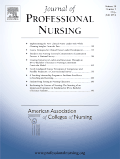
JOURNAL OF PROFESSIONAL NURSING
Scope & Guideline
Shaping Tomorrow's Nursing Through Scholarly Insights.
Introduction
Aims and Scopes
- Nursing Education Innovations:
The journal explores innovative teaching methodologies and curricula that enhance nursing education, including the integration of technology, simulation, and competency-based learning. - Professional Development and Leadership:
It addresses the development of nursing leadership, mentoring programs, and professional identity, supporting the growth of nurses in academic and clinical settings. - Research Methodologies in Nursing:
The journal emphasizes the importance of rigorous research methodologies, including qualitative and quantitative studies, to advance nursing science and education. - Diversity, Equity, and Inclusion in Nursing:
It focuses on strategies to promote diversity, equity, and inclusion within nursing education and practice, addressing systemic barriers and advocating for underrepresented groups. - Interprofessional Collaboration:
The journal highlights the significance of interprofessional education and collaboration in preparing nursing students for integrated healthcare delivery. - Policy and Advocacy in Nursing:
It examines the role of nurses in policy-making and advocacy, exploring the implications of healthcare policies on nursing practice and education.
Trending and Emerging
- Integration of Technology in Education:
There is a significant trend towards incorporating technology in nursing education, including virtual simulations, online learning platforms, and innovative assessment tools to enhance student engagement and learning outcomes. - Mental Health and Wellbeing of Nursing Students:
Recent publications increasingly address the mental health challenges faced by nursing students, particularly in the context of stress, burnout, and coping mechanisms during and post-pandemic. - Social Determinants of Health:
Emerging research highlights the importance of understanding and addressing social determinants of health within nursing curricula, preparing students to deliver culturally competent and equitable care. - Competency-Based Education:
There is a growing emphasis on competency-based education models that align with the evolving demands of healthcare, focusing on specific skills and outcomes required for nursing practice. - Diversity and Inclusivity Initiatives:
The journal is increasingly focusing on initiatives that promote diversity and inclusion within nursing education, including strategies for recruiting and retaining underrepresented groups in the field. - Interprofessional Education (IPE):
Emerging themes reflect the importance of interprofessional education and collaboration, preparing nursing students to work effectively within multidisciplinary teams in healthcare settings.
Declining or Waning
- Traditional Clinical Teaching Methods:
There is a noticeable decline in research focused on traditional, lecture-based teaching methods in nursing education, as the field shifts towards more innovative, interactive, and technology-enhanced pedagogies. - Nursing History and Historical Perspectives:
The exploration of nursing history and its implications for current practice has waned, possibly overshadowed by contemporary issues such as technology integration and diversity. - Generalized Nursing Competencies:
Research on broad, generalized nursing competencies is less frequent, with a shift towards more specific competencies tied to advanced practice roles and specialized areas of care. - Non-Clinical Focus Areas:
Topics that do not directly pertain to clinical practice or education, such as purely theoretical discussions without application to nursing practice, have seen a decrease in publication frequency. - Individualistic Approaches to Nursing Education:
There is a diminishing focus on individualistic approaches within nursing education, with a growing emphasis on collective strategies and community-based learning.
Similar Journals

Nursing Open
Empowering healthcare through open access research.Nursing Open is a premier open access journal published by WILEY, dedicated to advancing the field of nursing and healthcare research. With its ISSN 2054-1058, this journal has been at the forefront of disseminating innovative and impactful research since its inception in 2014. As an open access platform, it ensures that knowledge is accessible to all, promoting collaboration and engagement among researchers, practitioners, and students. Hailing from the United States and located at 111 River St, Hoboken, NJ 07030, Nursing Open has established itself as a vital resource in the nursing discipline, reflected in its impressive Q1 ranking in the 2023 category of Nursing (miscellaneous) and Scopus ranking of #36 out of 139 in General Nursing, placing it in the 74th percentile. With a commitment to high-quality research and a focus on contemporary issues in nursing, this journal invites contributions that foster evidence-based practice and enrich the global nursing community.
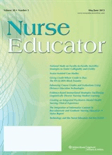
Nurse Educator
Elevating Nursing Education for Enhanced Patient Care.Nurse Educator, published by Lippincott Williams & Wilkins, serves as a pivotal resource in the field of nursing education and practice. With an ISSN of 0363-3624 and an E-ISSN of 1538-9855, this esteemed journal has been contributing to the development of nursing professionals since 1976 and is recognized for its impactful articles, reflected in its 2023 Q2 category rankings across various nursing and educational domains. Nestled within the competitive landscape of academic publishing in the United States, its substantial Scopus ranking underscores its significance, particularly in Nursing Fundamentals and Skills (Rank #7/15) and general nursing fields (Rank #52/139). The journal's scope encompasses essential topics pertinent to nurse educators, including pedagogy, clinical practice, and exam preparation strategies, ultimately aiming to enhance nursing education and improve patient care outcomes. By providing an engaging platform for innovative research and best practices, Nurse Educator stands as an essential resource for researchers, educators, and students committed to advancing the nursing profession.

Belitung Nursing Journal
Elevating Nursing Practices with Cutting-Edge InsightsBelitung Nursing Journal, an esteemed publication under the BELITUNG RAYA FOUNDATION, serves as a vital resource in the field of nursing and healthcare. Established in Indonesia, this Open Access journal has been disseminating high-quality research since 2015, promoting the exchange of knowledge and advancements in nursing practices. The journal holds a Q3 ranking in the Nursing (miscellaneous) category, with a commendable Scopus rank of #72 out of 139, indicating its growing influence among peers. With a focus on innovative nursing studies and comprehensive healthcare research, the Belitung Nursing Journal encapsulates a wide spectrum of topics essential to practitioners and scholars alike, positioning itself as a significant contributor to the global nursing community as it converges from 2018 to 2024.

Recherche en Soins Infirmiers
Empowering healthcare professionals with vital knowledge.Recherche en Soins Infirmiers, published by the ASSOC RECHERCHE & SOINS INFIRMIERS in France, offers a vital platform for sharing innovative research and insights in the field of nursing care. With its ISSN 0297-2964 and E-ISSN 2271-8362, this journal serves as an essential resource for healthcare professionals, researchers, and students alike, striving to advance nursing practices and improve patient care. Although it currently holds a Q4 ranking in the 'Medicine (Miscellaneous)' category and occupies a position of rank #468 out of 636 in the Scopus General Medicine category, it is dedicated to fostering scholarly communication and collaboration. The journal's scope reflects a comprehensive approach to nursing theories, practices, and innovations from the years 1996 to 2022, with ongoing publications anticipated for 2024. Despite the absence of an open access model, the journal continues to publish works that address pressing healthcare challenges, thereby contributing significantly to the advancement of nursing as a discipline.
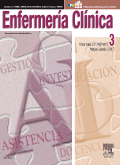
Enfermeria Clinica
Championing the future of nursing through rigorous scholarship.Enfermeria Clinica is a distinguished journal published by Elsevier España SLU, dedicated to advancing the field of nursing through robust scholarly research and clinical practice. With an ISSN of 1130-8621 and E-ISSN of 1579-2013, this esteemed journal serves as a vital resource for nurses, healthcare professionals, and researchers. Operating from Spain, it has established a reputation for excellence, notably achieving Q3 ranking in the categories of Fundamentals and Skills, Nursing (miscellaneous), and Research and Theory in 2023, indicating a solid influence within the academic community. The journal is devoted to disseminating innovative research that informs nursing practices and improves patient care. Although it operates on a subscription basis, the insights and findings published in Enfermeria Clinica are invaluable for those looking to enhance their knowledge in nursing evidenced-based practice. The journal’s commitment to bridging research with real-world application makes it an essential tool for both emerging and established professionals in the nursing field.
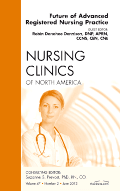
NURSING CLINICS OF NORTH AMERICA
Connecting practitioners to essential nursing advancements.Nursing Clinics of North America is a premier peer-reviewed journal published by W B Saunders Co - Elsevier Inc, providing a vital platform for the dissemination of innovative research and clinical practice insights in the field of nursing and medicine. With an impressive impact factor reflecting its relevance in academic circles, this journal falls within the Q2 category in both Medicine and Nursing disciplines, showcasing its importance to professionals and researchers. Established in 1966 and continuing through to 2024, it offers valuable contributions across a wide array of topics, facilitated by its Scopus rank of #41 in General Nursing and a 70th percentile ranking, marking it as one of the leading publications in the field. Although not an open-access journal, it provides subscription-based access to critical information that supports advancing nursing knowledge and practices. The journal is dedicated to enhancing the skills and understanding of nurses, healthcare professionals, and students, making it an essential resource for those seeking to excel in nursing and allied health professions.

Pielegniarstwo XXI Wieku-Nursing in the 21 Century
Fostering collaboration for nursing excellence.Pielegniarstwo XXI Wieku - Nursing in the 21 Century is an open-access journal dedicated to advancing the field of nursing research and practice. Published by DE GRUYTER POLAND SP Z O O, this journal provides a platform for innovative studies and discussions focused on contemporary nursing challenges and developments. Launched to further dialogue in nursing and health care, the journal has been freely accessible since 2016, reflecting the growing commitment to share knowledge without barriers. With an ISSN of 1730-1912 and E-ISSN 2450-646X, it serves a global audience of researchers, professionals, and students seeking to contribute to and learn from the latest findings in nursing. Despite its current Scopus ranking in the 10th percentile within the miscellaneous nursing category, the journal remains essential for fostering collaboration and improving nursing education in Poland and beyond. As part of its evolving scope from 2019 through 2024, Pielegniarstwo XXI Wieku aims to enhance the quality of care through evidence-based research and innovative nursing practices.
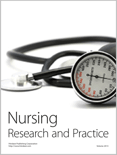
Nursing Research and Practice
Innovating practices to elevate patient care.Nursing Research and Practice, an esteemed open-access journal published by HINDAWI LTD, serves as a vital resource in the field of nursing, providing a platform for the dissemination of innovative research and practice methodologies. With its ISSN 2090-1429 and E-ISSN 2090-1437, this journal has maintained a commendable presence in the academic community since its inception in 2010. Based in Egypt, it is positioned within the Q2 category of Nursing (miscellaneous) and ranks #47/139 in General Nursing according to Scopus, placing it in the 66th percentile. The journal is committed to advancing nursing science and facilitating an evidence-based approach to practice, encouraging contributions that explore the full spectrum of nursing discipline. As a vital reference for researchers, healthcare professionals, and students alike, Nursing Research and Practice not only keeps its audience informed but also promotes innovative practices to enhance patient care across diverse settings.

Nursing Practice Today
Bridging Research and Practice in NursingNursing Practice Today is an esteemed journal published by Tehran University of Medical Sciences, focusing on the dynamic and essential field of nursing. Since its transition to Open Access in 2015, this journal has facilitated wider dissemination of knowledge, allowing researchers, professionals, and students alike to engage with pioneering studies and practical advancements in nursing care. With an impact factor that reflects its relevance within the academic community, it holds a Q3 ranking in the nursing (miscellaneous) category as of 2023, and ranks 77th out of 139 in general nursing according to Scopus, placing it within the 44th percentile for its field. Nursing Practice Today publishes high-quality research, reviews, and case studies that aim to elevate nursing practices and improve patient outcomes across a variety of healthcare settings. As a platform that champions the ongoing education and professional development of nursing specialists, this journal plays a pivotal role in shaping contemporary nursing practice and addressing emerging challenges in healthcare.

NURSE PRACTITIONER
Elevating Nursing Standards through Scholarly ResearchNURSE PRACTITIONER, published by Lippincott Williams & Wilkins, is a premier journal dedicated to advancing the field of nursing and health care practice. Since its inception in 1975, this journal has provided a vital platform for the dissemination of research, clinical insights, and interdisciplinary scholarship, bridging gaps in nursing education and practice. With an impact factor reflective of its focus on evidence-based practice, NURSE PRACTITIONER is positioned in the Q3 category of Nursing (miscellaneous) and Q4 in Medicine (miscellaneous) for 2023, indicating its growing relevance in the academic community. Each issue features a range of articles from original research to review papers, designed to empower nurse practitioners and enrich educational methods. Although it does not currently offer open access, the journal remains a critical resource for professionals seeking to stay informed on innovative practices and the latest advancements in the field, making it indispensable for researchers, practitioners, and students alike. For more information, visit the publisher's website at Two Commerce Sq, 2001 Market St, Philadelphia, PA 19103.